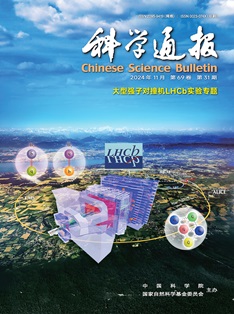建筑蓄热原理及其设计参数
引用次数: 0
摘要
建筑节能是降低社会总能耗的一个重要方面。过度依赖采暖和空调设备,不仅会产生大量的能源消耗,而且不利于人体健康。通过建筑设计使室内环境尽可能满足自然条件下人体的热舒适要求,是建筑师的重要责任。在这一过程中,提高建筑的热工性能,充分利用自然资源是关键所在。蓄热过程是伴随传热过程的一种自然现象。建筑蓄热是独立控制室内热环境的关键。建筑材料和结构的热特性以及外部环境的周期性变化是建筑蓄热的根本原因。建筑蓄热过程包括热量的吸收、储存和释放,是应对周期性不稳定热作用的核心,可以解决建筑内热量时空分布不匹配的问题,对建筑热工设计和节能设计具有重要意义。建筑蓄热主要是通过建筑设计与规划的方式,将建筑构件的 "削峰填谷 "作用与其他因素耦合,最大限度地发挥建筑对热流的调节作用,实现室内热环境的优化。本综述分析了建筑蓄热的相关概念,区分了 "建筑蓄热 "和 "围护结构蓄热"、"保温 "和 "隔热"、"热惯性"、"热质量 "和 "热惯性指数 "等相似概念。总结了建筑蓄热的功能原理和基本模式。揭示了各向异性太阳辐射多过程传输和转化形成的 "双高槽温度波 "效应本文章由计算机程序翻译,如有差异,请以英文原文为准。
Principle of building heat storage and its design parameters
Building energy saving is an important aspect of reducing the total energy consumption of society. Excessive reliance on heating and air conditioning equipment will not only produce a lot of energy consumption, but also be not conducive to human health. It is an important responsibility of architects to make the indoor environment meet the thermal comfort requirements of the human body under natural conditions as much as possible through architectural design. In this process, it is the key to improve the thermal performance of buildings and make full use of natural resources. The heat storage process is a natural phenomenon accompanied by the heat transfer process. Building heat storage is the key to the independent control on the indoor thermal environment. The thermal characteristics of building materials and structures and the periodic changes of external environments are the fundamental reasons for building heat storage. The building heat storage process, including the absorption, storage and release of the heat, is the core of coping with the periodic unstable heat action, and can solve the problem of the mismatch of the spatial and temporal distribution of the heat in the building, which is of great significance for the building thermal engineering design and energy saving design. Building thermal storage is mainly through the way of architectural design and planning, the “peak cutting and valley filling” effect of building components is coupled with other factors, so as to maximize the regulation effect of building on heat flow and realize the optimization of indoor thermal environments. In this review, the related concepts of building heat storage are analyzed, and similar concepts, such as “building heat storage” and “envelope heat storage”, “thermal preservation” and “thermal insulation”, “thermal inertia”, “thermal mass” and “thermal inertia index”, are distinguished. The function principle and basic model of building heat storage are summarized. The “double high trough temperature wave” effect formed by multi-process transmission and transformation of anisotropic solar radiation is revealed
求助全文
通过发布文献求助,成功后即可免费获取论文全文。
去求助
来源期刊

Chinese Science Bulletin
综合性期刊-综合性期刊
自引率
0.00%
发文量
31457
审稿时长
2.6 months
期刊介绍:
Chinese Science Bulletin (CSB) was established in 1950 and is currently published three issues every month. It is indexed by Ei Compendex, ESCI (Emerging Sources Citation Index)and Chinese Science Citation Database (CSCD),etc. CSB is a multidisciplinary academic journal supervised by the Chinese Academy of Sciences (CAS) and co-sponsored by the CAS and National Natural Science Foundation of China (NSFC). CSB is committed to rapidly reporting the most advanced developments in natural sciences and engineering and to serving the scientific community with valuable insights into upcoming trends.
 求助内容:
求助内容: 应助结果提醒方式:
应助结果提醒方式:


